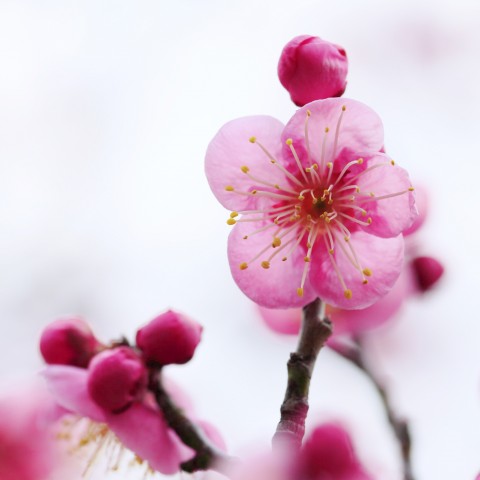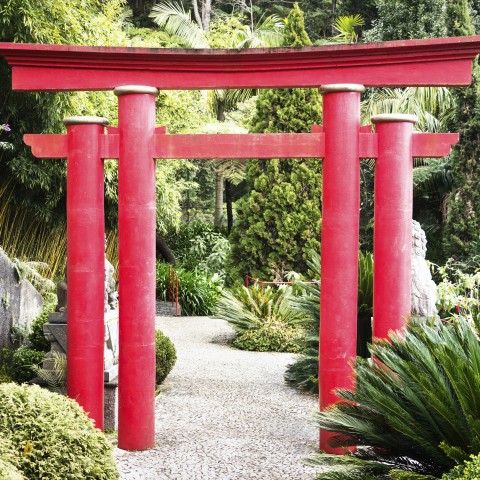Japan is a country with quite a rich culture and history, and the Setsubun Festival reflects this. Find out why the Japanese hold the Bean-throwing Ceremony each year and much more about this holiday’s events with JapanesePod101.com!
After you’ve learned about this holiday, you’ll have gained much insight into Japan as a whole. So let’s get started by finding out what exactly the Setsubun Festival is.

1. What is Setsubun Day?
Setsubun Day, also known as the Japanese Bean-throwing Festival, is a unique Japanese holiday. Essentially, the Bean-throwing Festival is celebrated as a way of chasing demons away and summoning good fortune.
In ancient times, many believed that evil spirits were born during the changing of the seasons, and these spirits would make people ill or destroy their crops. To protect themselves, they created a special event to exorcise a symbolic evil spirit, or demon.
This special event is still performed each year, through throwing beans and reciting chants to keep demons away. Read on for more information about these celebrations.
2. When is it?
節分 (Setsubun) literally means “the day that marks the change from one season to the next.” In the spring, this day is called 立春 (risshun); in the summer, it’s 立夏 (rikka); in the fall, it’s 立秋 (risshū); and in the winter, it’s 立冬 (rittō). Since the Edo period in the 16th and 17th century, the day before 立春 (risshun), meaning “spring,” has been the only one with the name 節分(Setsubun). It’s held each year around February 4.
3. How is it Celebrated?
There are some fascinating Setsubun traditions that take place on this day. Take, for example, the following.
At places such as homes and temples, people say, “鬼は外、福は内! (Oni wa soto, fuku wa uchi!)” meaning “Demons outside, fortune inside!” Then, they throw roasted soybeans, known as 福豆 (fukumame) or “fortune beans.” Each family member sows beans at home, though in recent years they have become available at stores like supermarkets.
At temples, men and women known as 年男 (toshi otoko) and 年女 (toshi onna), meaning they were born in the same Chinese zodiac sign as the current year, throw the beans. These people are said to be vulnerable to disaster that year. After throwing the beans, one bean is eaten for each year of age, and prayers are made for good health over the course of the year.
Demons are a big part of throwing the beans. However, since demons are fictional and don’t actually exist, fathers will often wear a demon Setsubun mask (or Setsubun oni) and dress as a demon. At kindergartens and nurseries, teachers will play the role of the demon. While children are a little scared, they cheerfully throw beans while chanting “demons outside, fortune inside.” The demon then rushes away and escapes through a door.
At 節分 (Setsubun), 恵方巻 (ehōmaki) is eaten for good luck. This is a large sushi roll stuffed with Japanese omelette (also known as Tamagoyaki), cucumber, and gourd. Sushi rolls are usually cut into bite-size pieces, but ehōmaki is eaten just as it is, approximately twenty centimeters (almost eight inches) in length.
There’s also an interesting custom of eating this meal while facing the “lucky direction” for that given year. Further, it’s considered good luck to finish eating the roll in total silence, and many people choose to think about their wishes for the new year as they eat it. One possible wish could be for 無病息災 (Mubyō sokusai) or a “state of perfect health.”
4. Additional Information
Did you know that while in most regions people chant “demons outside, fortune inside,” in some places people chant “fortune inside, demons inside?” At temples dedicated to demons, it’s thought that demons are for the use of a god, and so chanting “demons outside” is taboo. This offers a glimpse into an interesting facet of the Japanese culture and how thinking differs on this topic.
Another interesting fact about this holiday is that sardines are attached to a holly branch, which is then hung on the door. Thorns also grow on holly trees, and it is believed that they too have the power of a talisman to ward away demons.
5. Must-know Vocab
Here’s some helpful vocabulary for you to study so you can celebrate Bean-throwing Day to its fullest!
- 豆 (まめ) — green bean
- 節分 (せつぶん) — Bean-throwing Ceremony
- 神社 (じんじゃ) — shrine
- 鬼 (おに) — devil
- 立春 (りっしゅん) — the first day of spring
- 無病息災 (むびょうそくさい) — state of perfect health
- 恵方巻き(えほうまき) — fortune sushi roll
- 福は内、鬼は外 (ふくはうち、おにはそと。) — Devils out! Good luck in!
- 鬼の面 (おにのめん) — devil’s mask
- 豆まき(まめまき) — bean-throwing
- 節分祭 (せつぶんさい) — bean-throwing festival
To hear the pronunciation of each vocab word, check out our Japanese Bean-throwing Day vocabulary list. Here you’ll find each vocab word with an audio file for you to listen to.
Conclusion
As you can see, the Setsubun Festival is rooted deeply in Japan’s history, especially in terms of early religion and spiritual beliefs. While some of these beliefs have dwindled over time, this is still a widely celebrated holiday and is enjoyed by many Japanese people each year.
What do you think about the Setsubun Bean-throwing Ceremony in Japan? Is there a similar holiday in your home country? Let us know in the comments!
Interested in learning more about Japanese culture? Visit us at JapanesePod101.com, and take advantage of our free vocabulary lists as well as our informational blog posts. You can even utilize our online community to discuss lessons with fellow students, and download our MyTeacher app for a one-on-one Japanese learning experience.
We hope you enjoyed learning about this Japanese holiday and that you’ll continue delving into Japan’s fascinating culture as you learn the language. JapanesePod101.com will be here for you every step of the way!
















